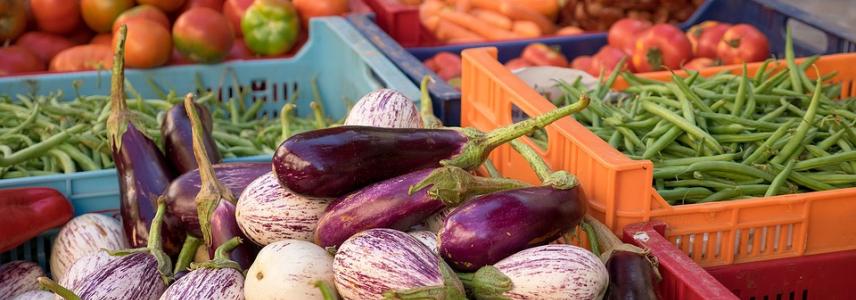CBI in practice: helping Jordan’s farmers to get back in the export game

The war in Syria has cut off Jordan’s vegetables and fruit exporters from their most important markets, with an influx of refugees adding to pressure on jobs. CBI is helping the farmers and refugees get back in the game. ‘In a desperate situation, the Dutch government acted quickly to intervene, with several governmental agencies and the Dutch embassy in Jordan working closely together,’ says CBI Programme Manager Reinoud Nuijten.
Multi-year export development programme
After an initial nine-month export knowledge sharing programme, CBI is preparing a multi-year export development programme. Nuijten explains, ‘In the first nine months, we contributed to a Sector Export Marketing Plan (SEMP), identifying four potential export markets for Jordan’s farmers: West Europe, East Europe and Russia, the Gulf States and the Far East. Rolling out a complete export development programme can take up to one year, so we inserted an interim market testing programme to keep the ball rolling.’ Nuijten notes that of the four target markets, the Gulf region has the highest potential.
Individual export marketing plans
The interim programme involves taking a group of Jordanian exporters and/or important players in the sector to trade fairs in the four target markets with the aim of testing the findings of the SEMP. With CBI’s support, these companies are also drawing up individual export marketing plans. ‘The CBI team selected the more advanced companies for this phase,’ says CBI Market Expert Jos Leeters, who was involved until mid-2017. ‘Later, if and when the multi-year programme is rolled out, the companies needing more time to develop their exports will be able to follow.’
Pressure on Jordan’s economy
Leeters notes that the sector’s potential is high, with fertile land, a strong tradition in farming and entrepreneurship and political stability. But to get back on the international trade map, the sector faces a steep learning curve. According to figures published by the International Labour Organisation (ILO), which like CBI is working hard to support Jordan’s economy, over 630,000 refugees had entered Jordan by January 2016. The pressure on Jordan’s economy and labour market is enormous, causing a drop in average wage levels, harsher working conditions, rising child labour and an expansion of the informal labour market.
High potential
‘Our focus on agriculture is a deliberate one,’ says CBI Country Manager Koos van Eyk, ‘because this sector offers a lot of employment potential. Export growth will not just create jobs for Jordanians, but also for the refugees. Fortunately, the government has put agriculture exports firmly on the agenda and the Jordan Exporters and Producers Association for Fruits and Vegetables (JEPA), with 200 members, has a good starting position. Also, the World Bank and other donors are stepping in. If everything falls into place, Jordan’s agriculture sector will gain the momentum it needs to really grow and mature.’
Products to look out for
With diverse climatic zones, Jordan produces many different fruits and vegetables. A few examples:
- Cucumber, tomato, sweet pepper (various types and colours) almost year round
- Stone fruit (peaches, nectarines), pome fruit (apples, pears) and grapes from May to end of summer
- Dates from July to November
- Rain-fed and irrigated olives in season
- Fresh herbs, both cultivated and wild, throughout the year
- Strawberries, notably in December, when they are in high demand in Europe